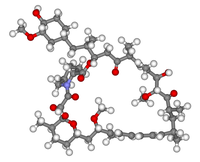
Molecular neurobiology of mTOR
Sign Up to like & getrecommendations! Published in 2017 at "Neuroscience"
DOI: 10.1016/j.neuroscience.2016.11.017
Abstract: Mammalian/mechanistic target of rapamycin (mTOR) is a serine-threonine kinase that controls several important aspects of mammalian cell function. mTOR activity is modulated by various intra- and extracellular factors; in turn, mTOR changes rates of translation,… read more here.
Keywords: nervous system; mtor; neurobiology; mtor activity ... See more keywords

Abstract 4858: Effect of mTOR activity in peripheral blood mononuclear cells with metformin in high-risk prostate cancer patients receiving external beam radiotherapy and androgen deprivation therapy
Sign Up to like & getrecommendations! Published in 2023 at "Cancer Research"
DOI: 10.1158/1538-7445.am2023-4858
Abstract: Introduction: There is considerable interest in the antineoplastic properties of metformin for prostate cancer treatment, however, the underlying mechanism of action of metformin in this setting is poorly understood. It is suspected that metformin’s antineoplastic… read more here.
Keywords: prostate cancer; patients receiving; mtor; mtor activity ... See more keywords

Characterization of mTOR Activity and Metabolic Profile in Pediatric Rhabdomyosarcoma
Sign Up to like & getrecommendations! Published in 2020 at "Cancers"
DOI: 10.3390/cancers12071947
Abstract: mTOR activation has been observed in rhabdomyosarcoma (RMS); however, mTOR complex (mTORC) 1 inhibition has had limited success thus far. mTOR activation alters the metabolic pathways, which is linked to survival and metastasis. These pathways… read more here.
Keywords: characterization mtor; activity metabolic; rhabdomyosarcoma; mtor ... See more keywords

Exposure to the Amino Acids Histidine, Lysine, and Threonine Reduces mTOR Activity and Affects Neurodevelopment in a Human Cerebral Organoid Model
Sign Up to like & getrecommendations! Published in 2022 at "Nutrients"
DOI: 10.3390/nu14102175
Abstract: Evidence of the impact of nutrition on human brain development is compelling. Previous in vitro and in vivo results show that three specific amino acids, histidine, lysine, and threonine, synergistically inhibit mTOR activity and behavior.… read more here.
Keywords: amino acids; human cerebral; mtor; mtor activity ... See more keywords